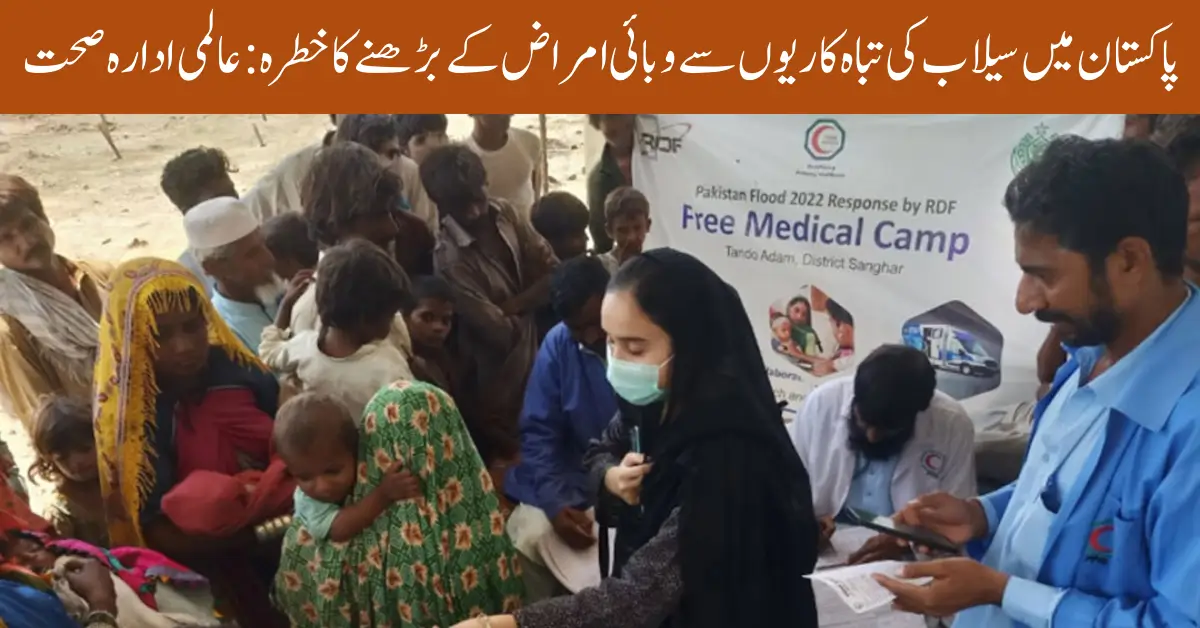Floods in Pakistan Trigger Surge in Epidemics
The recent Floods in Pakistan Trigger Surge in Epidemics, causing a health emergency across the country. According to a warning issued by the World Health Organization (WHO), the devastating floods have led to a sharp increase in various epidemic diseases, and if immediate action is not taken, Pakistan’s healthcare system could face a serious crisis.
WHO Sounds the Alarm Over Post-Flood Epidemics
The WHO has raised serious concerns about the worsening health situation in Pakistan following widespread flooding. In its report, the organization warned that the country is at high risk of a public health disaster due to a sudden increase in disease outbreaks. The report highlights that Pakistan’s health infrastructure is already under pressure, and the rising number of patients may soon overwhelm hospitals and clinics.
BISP Taleemi Wazaif Payment be Received after the Summer Holidays? Schedule here
Dangerous Rise in Disease Cases
After the floods, there has been a sharp increase in several infectious diseases. According to the WHO:
- Dengue cases have increased by 41%
- Malaria cases have gone up by 26%
Floodwaters create ideal breeding grounds for mosquitoes, leading to the rapid spread of these vector-borne diseases. The situation is especially alarming in densely populated and flood-affected areas where stagnant water has not yet been cleared.
Regional Health Crisis Across Provinces
Different provinces are experiencing various health emergencies:
- In Balochistan and Sindh, there is a fast spread of diarrhea, particularly among children and the elderly. The lack of clean drinking water and sanitation has worsened the issue.
- In Khyber Pakhtunkhwa (KPK), there is a noticeable rise in scabies, skin diseases, as well as snake and dog bite incidents. Many rural areas are still waiting for medical aid and clean water supplies.
Each province faces its own challenges, making it harder to control the overall public health situation.
Why Are These Diseases Spreading?
Several factors have contributed to the health crisis after the floods in Pakistan:
- Stagnant floodwater has become a breeding ground for mosquitoes and bacteria.
- Displacement of thousands of families has led to overcrowded relief camps.
- Poor sanitation and a lack of clean water have made it easy for diseases to spread quickly.
- Limited access to healthcare has delayed treatment and prevention measures in many rural areas.
Wheat Prices hit Record High in Punjab due to Floods
Healthcare System Under Pressure
Hospitals and clinics in flood-hit areas are struggling to cope with the increasing number of patients. The shortage of:
- Medical staff
- Essential medicines
- Diagnostic tools
is making it difficult for healthcare providers to manage the situation. If no urgent action is taken, there is a high risk that Pakistan’s healthcare system could be overwhelmed.
What Needs to Be Done Immediately
To prevent a full-blown health catastrophe, the WHO and health experts recommend the following urgent steps:
- Deploy mobile medical units to flood-affected areas.
- Start mosquito control programs, including fumigation and awareness campaigns.
- Distribute hygiene kits, clean drinking water, and oral rehydration salts.
- Set up emergency health camps in relief shelters.
- Improve disease surveillance systems to detect and control outbreaks quickly.
Sindh CM Expands Mamata Program to 22 Districts to Supports 1.3 Million Pregnant & Lactating Women

